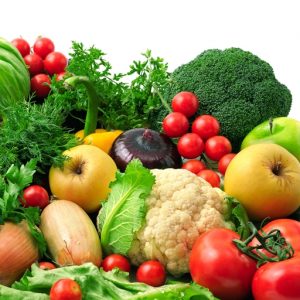“Covid-19 has pointed to the urgent need to diversify the production and distribution of food, and to shorten supply chains. What we need is a radical scheme to challenge the domination of the supermarkets and promote new ways of doing business in the public interest.”
.
At a recent Sidmouth Café Scientifique – just before the real impact of the coronavirus crisis was being felt – Prof Evan Davis made the case for substantially upping the production and distribution of local food:
New Thinking on Clean Growth – Transforming Sidmouth – Prof Evan Parker – Café Sci – 31mar20
.
And we have been considering the case seriously:
Local community support through food
Beyond the coronavirus: a new vision for Sidmouth
.
Here is a very timely report just out from Martin Yarmit of the Winston Churchill Memorial Trust:
.
 Blog: Ten things Covid-19 has taught us about food
Blog: Ten things Covid-19 has taught us about food
Published: 6 May 2020
Food supply has emerged as a major issue during the Covid-19 pandemic. Supermarkets and food banks have struggled to keep up with demand, causing panic-buying across the UK.
I am the co-founder of a community owned and run village produce shop in Herefordshire, and as part of my Churchill Fellowship I travelled to the USA and Italy in 2017 to explore how community shops can grow whilst supporting local food and drink producers. Here are my ten reflections on what Covid-19 has taught us about food supply and production – and what we should be doing in response.
“We need to recognise that food is as much of a public concern as health and social care. That means investing in new systems of local production and distribution” – Martin Yarnit, Fellow
1. We are frighteningly dependent on the supermarket food distribution system. The panic-buying which spread like wildfire through the developed world last month reflected a rational fear about the vulnerability of global supply chains as the virus swept through the world’s food production regions.
2. Without factory food and massive food imports, supermarket shelves would be bare. Seasonal migrant workers are staying home, leaving strawberries and asparagus to rot in Spain, Italy and France. Coldiretti, an Italian farmers’ association, estimates that they will be short of 100,000 foreign labourers. More than 25,000 people in the UK have responded to appeals from farmers to help with the spring and summer harvest, but that is still short of the workforce that descends on Britain at this time of year, mainly from eastern Europe.
3. According to The Caterer, as a result of the lockdown, four in five adults have now stopped eating out-of-home completely, even for a takeaway. So with a corresponding rise in home cooking, supermarkets are struggling to cope with a massive rise in trade. Despite recruiting 16,000 more workers, Tesco is not meeting the demand for home deliveries. Food shopping has become a crisis in its own right even if, for the moment, the shelves are well stacked.
4. Meanwhile, perhaps as a by-product of panic-buying, local councils have reported a big rise in food wastage, despite an unprecedented demand for help from food banks. The Trussell Trust, which supports 1,200 food banks, anticipates supplying 360,000 food parcels over the coming three months.
5. To reduce dependence on food handouts, wages must rise. Of households referred to food banks, 14% have someone in employment – demonstrating that even people in work are experiencing poverty. The Universal Credit system should also be reformed to address long payment delays.
6. To reduce dependence on imports of food and labour, wages in the food sector itself must rise. The incomes of our small and medium sized producers must also improve dramatically.
7. We need to recognise that food is as much of a public concern as health and social care. That means investing in new systems of local production and distribution. Currently we import half of our food, yet of the 6,000,000 hectares of cultivatable land in Britain, only 168,000 hectares are used for fruit and vegetables. Consumers are beginning to realise that by supporting local farmers and getting milk delivered, we are also protecting our countryside.
8. We should build on local initiatives such as Local Food Links based in Bridport. Founded in 2007, this community interest company (CIC) uses four kitchens to cook and supply school meals to more than 50 schools, primarily in Dorset, using local produce.
9. Covid-19 has pointed to the urgent need to diversify the production and distribution of food, and to shorten supply chains. What we need is a radical scheme to challenge the domination of the supermarkets and promote new ways of doing business in the public interest.
10. To that end, we should study alternative ways of producing and supplying food. There is a lot to be learnt from the food hubs in the USA and producer co-ops in Italy that I visited as part of my Fellowship. My full report can be downloaded here.
Blog: Ten things Covid-19 has taught us about food | wcmt.org.uk
.
photo: Frutas e Vegetais | fresh fruits and vegetables isolated on … | Flickr